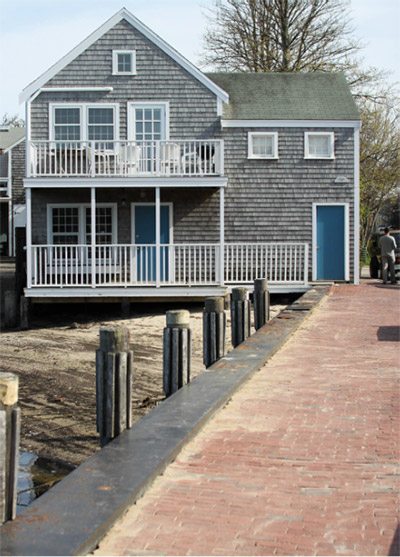 If your secondary home or vacation home has a mortgage, your lender may require homeowners insurance just as it would for your primary residence. However, there may be additional stipulations in the policy because you only reside in the home for part of the year. Like with your primary homeowners insurance, it is important to review the policy for your secondary home every year and keep an up-to-date home inventory in case you would need to file a claim following a loss.
If your secondary home or vacation home has a mortgage, your lender may require homeowners insurance just as it would for your primary residence. However, there may be additional stipulations in the policy because you only reside in the home for part of the year. Like with your primary homeowners insurance, it is important to review the policy for your secondary home every year and keep an up-to-date home inventory in case you would need to file a claim following a loss.
Even if you do not plan to spend time at your vacation home, you might consider maintaining coverage for the structure, contents and your liability in the event that someone gets injured on your property while you're not there.
When reviewing your vacation home insurance policy, remember the insurance requirements in another area may be different than where your primary home is located. Talk with an insurance agent if you think you might need flood insurance or additional coverage against wind, hurricanes or earthquakes.
"Named Perils" Coverage
Homeowners insurance for a secondary home can have significantly different terms than your primary home's insurance policy. How a secondary property is used and how often it is occupied during the year determines the type of coverage. Insurance for these properties is typically written on a "named perils" basis.
A "named perils" policy covers losses for events specifically outlined in the policy, such as lightning, explosion, theft or smoke damage.
Homeowners policies also typically provide liability coverage in case a guest is injured on your property or if you are responsible for damage to another's property. Your homeowners policy might also include medical payments coverage that would pay an injured person's medical bills to a stated limit, regardless of negligence.
Additional Options for Secondary Home Policies
There are several ways to further protect a vacation home that you may want to consider. They include:
- General contents coverage for loss or damage to belongings permanently kept at the vacation home.
- Sewer back-up coverage or flood insurance because water damage can be even more extensive in a home when you aren't there to either stop the flow of water or quickly remove water-damaged property. Be aware that flood insurance has a 30-day waiting period.
- Out buildings might have a limited amount of coverage in a secondary homeowners policy. Review your insurance policy to make sure you are protected against damage to detached buildings - such as garages, sheds and boathouses - and their contents.
- Insurance companies might require homes with swimming pools to have special safety measures. These could include the installation of fencing, a pool cover or a locked gate. An insurance company could deny coverage or cancel your policy if you do not follow the policy safety guidelines or do not inform the company that you have a pool.
Umbrella Policies
If you have an umbrella policy in place to provide excess liability coverage, the policy should automatically extend to any new property you purchase or rent. To be sure the umbrella meets your liability expectations and that there are no exclusions in the policy that might be triggered by the new property, read your policy before making your down payment.
Waterfront Vacation Homes
The personal property coverage of your primary or secondary homeowners policy might cover a small boat for $1,500 or less in physical damage. However, coverage for your liability risk is limited. Insurers generally provide liability insurance on small sailboats (26 feet or less) and powerboats with small motors (50 hp for inboard and inboard/outboard and 25 hp for outboard motors). However, a boat of any significant size will be excluded from your homeowners policy for both property and liability coverage. Read your homeowners policy carefully before you put your boat in the water.
Personal watercraft will likely require a separate boat insurance policy. You might be able to purchase this policy from your homeowners insurer or you might choose to use an insurer that specializes in boat insurance. Get quotes and compare policies from several different places to get the best deal.
Some important questions to answer before you head out on the water:
- Are you insured if someone other than yourself is operating your boat or personal watercraft?
- Are there legal age restrictions on who may operate the boat or personal watercraft?
- Is towing skiers or inner tubes covered by your policy?
Renting Your Vacation Home to Others
If you hope to make a little extra cash this summer renting your vacation home when you aren't there, first review your insurance policy. It may be wise to purchase additional liability, bodily injury and medical payment insurance to cover your risk when you or your family is not in the home.
Also be aware that your homeowners coverage might not extend to damage caused by a renter and/or their guests. Read the policy closely to ensure your coverage meets your expectation.
For more information on insuring your vacation home or boat this summer, contact Lallis & Higgins.
naic.org





